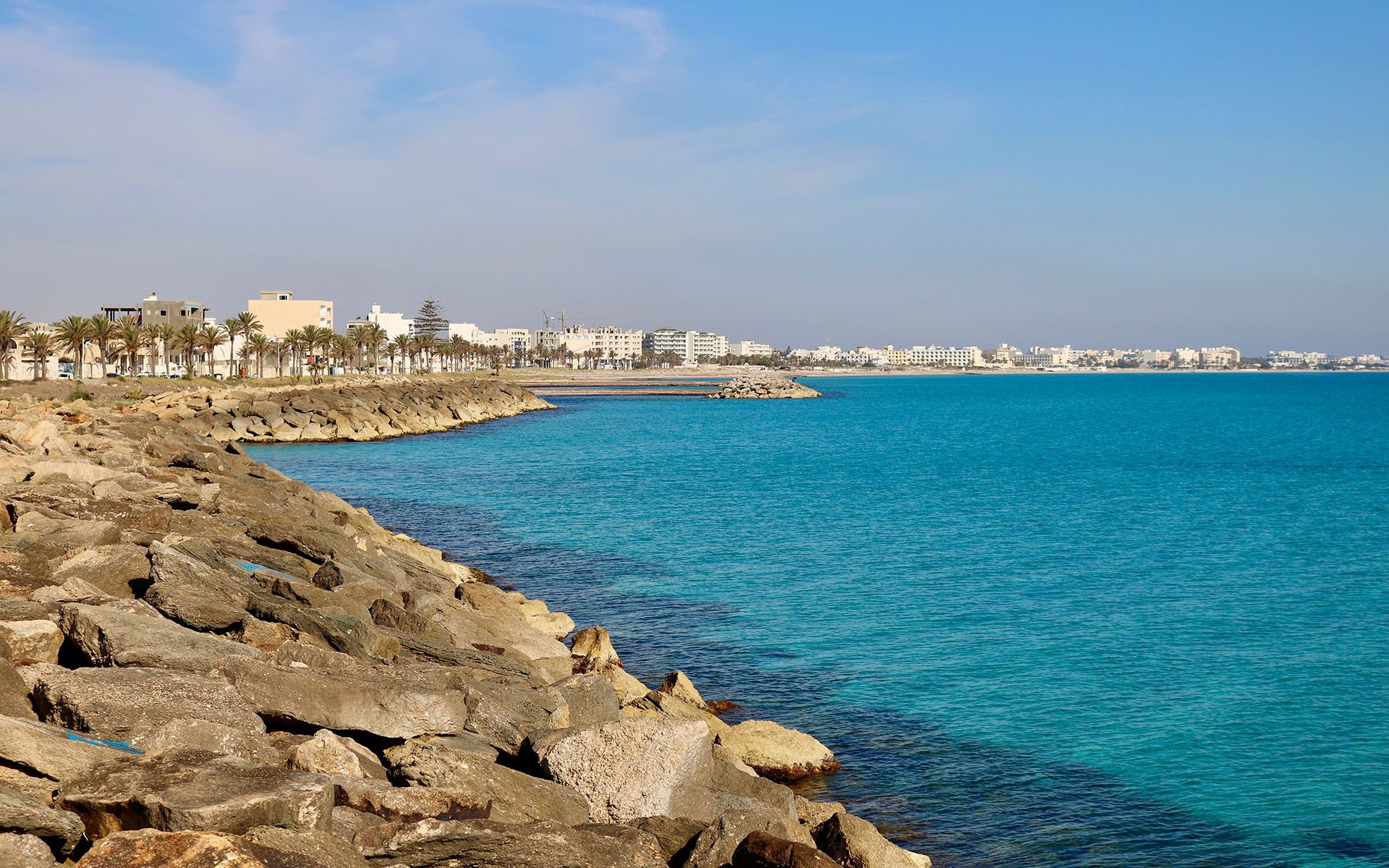Personal Essay
Historical writer David McCullough wrote about one of John Adams’ to-do lists: “Let’s see, buy a pound of nails, whitewash the back fence, and write a letter of independence to King George.”
In May, I met a man similar to Adams, Mustafa Ben Jaffar, who among other things on a particular day, probably had to get his car washed, check his laundry, and write a new federal constitution for the Republic of Tunisia. After centuries of invasions, royal family domination, and a 35-year dictatorship, Tunisians were now going to create their own secular, democratic, inclusive society. Of their own volition, by their own hands, and for all their people.
Earlier in May, I attended the School for International Training in Vermont, then traveled with six other U.S. university professors to learn firsthand about Tunisia’s transition to democracy. The UF Provost’s Internationalization Grant funded an eight-day exploration (opens in new tab) that featured conferences with members of Parliament, historians, archaeologists, two of the four groups that won the 2014 Nobel Peace Prize, leaders of several human rights NGOs, and Tunisian President Beji Caid Essebse.
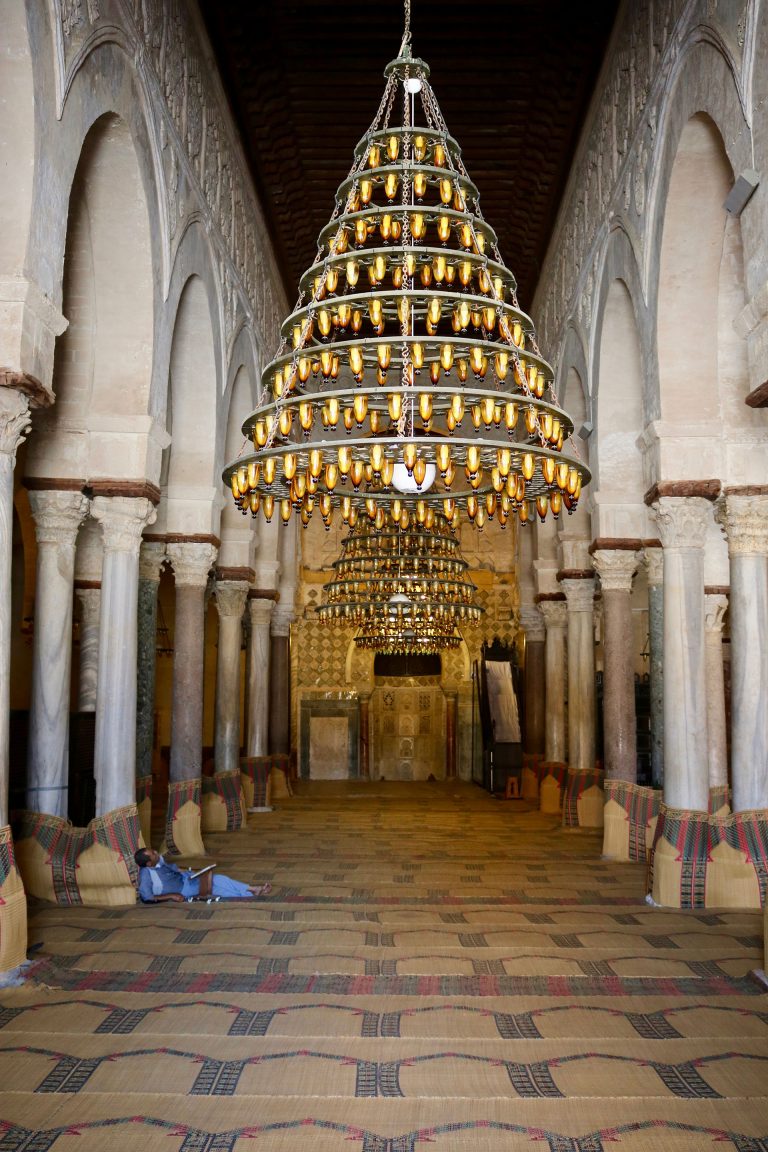
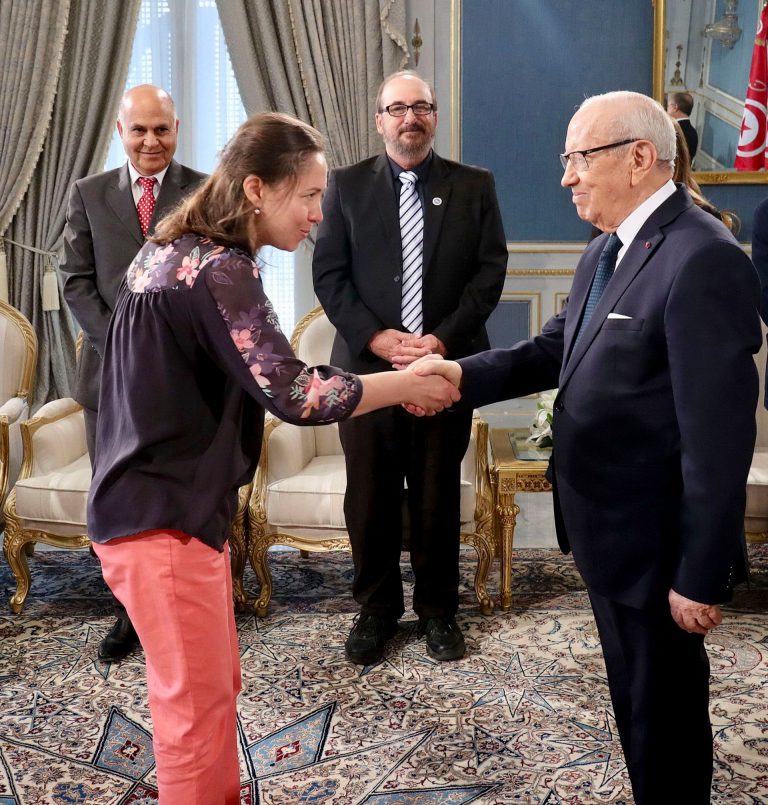
Listening to Mustafa, widely recognized as the father of the Tunisian Constitution, was enlightening. We academics tend to discuss things to death, parse the language, and argue over every detail. Mustafa, on the other hand, was straightforward in his explanation of how he sat down with dozens of groups, political parties, religious elders, administrators, military leaders, and ordinary citizens to get them to buy in to a new federal authority. “I just listened, and listened, and listened some more in what I estimate were 600 meetings.”
After the fall of the dictator Zine el Abidine Ben Ali in 2011, Tunisians set up a “Troika” – the Congres Pour la République with a provisional president; Takatol, the National Constituent Assembly led by Rached Ghnaoucchi; and the Islamic party of Ennahdha. The Troika’s main responsibility during this transition was to codify what the institutions now meant. It had to answer many questions: What is a federal judiciary? How do we run a national financial department in a multiparty legislative body? What inherited laws can we repeal? They started by repealing a 1913 ruling from the French Penal Code outlawing homosexuality. (Tunisia was a French protectorate for several decades.)
They codified four freedoms: dignity through jobs, social justice through equality, liberty through freedom of conscience (the right to believe or not to believe), and democracy through universal suffrage. The goal was to transform the one-party state into a responsive administration with human rights and gender equality. The Election Commission now requires each party to field equal numbers of women on their candidate lists.
The main communication techniques utilized during their transition and as of 2017 included consensus-building and decision-making with input from hundreds of state and non-state actors and human rights activists. The decision-making process featured compromise and collaboration not just among the four groups writing the new constitution, but also among hundreds of players from former and current administrations.
Though Tunisia’s population is 98 percent Muslim, the grand compromise was voting in a secular society with religious rights, not the other way around. We professors on this trip felt an underlying tension between some who wanted a more religious and conservative society, and the majority that preferred a more secular approach.
How successful were they? The new constitution was ratified by 200 out of 217 electoral representatives. Tunisia now has more than 200 political parties, 85 newspapers, 40 TV and radio stations, one of which, Mosaique, is a well respected regional news service. Citizens from large towns to small villages now have multiple internet platforms and engage in spirited conversations at cafés over espressos, mint tea, beer, or Turkish ice cream.
Of course, factionalization exists, but the best analogy is a rugby “scrum,” in which players push and pull as the scrum moves around the field. They know their fate is truly intertwined with each other. We found that every Tunisian carries a serious torch for democracy, and our local coordinators spun stories from ancient cultures to current political intrigue.
However, there are pitfalls on the way to pluralist democracy. Unemployment among youth, especially college graduates is high (estimated 240,000 out of work). Corruption is estimated to consume upwards of 40 percent of the GDP. Frustration with the slow pace of implementing even simple infrastructure improvements is high. The director of the business and artisans union pointed out to us that there are only 88 large companies in Tunisia, and negotiating with multinational organizations has been tough. Also, everyone is worried about Saudi Arabian and Qatari funding of business and educational institutions that may sabotage the secular underpinnings of the new society.
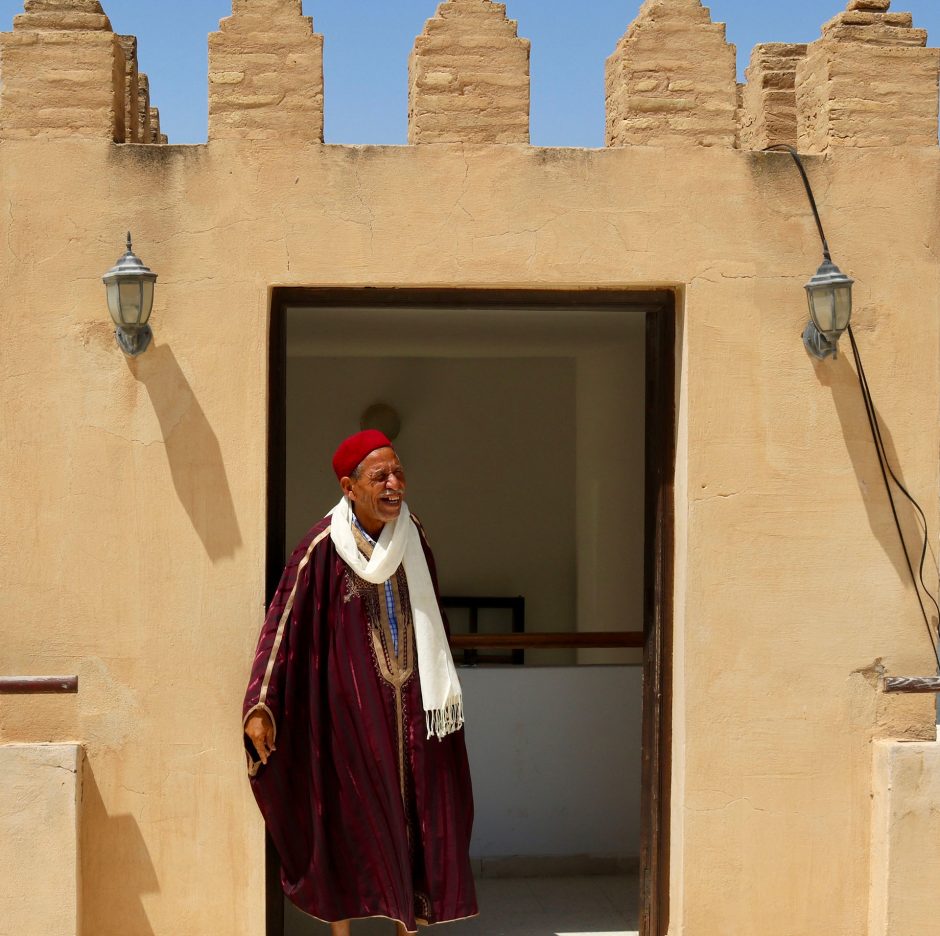
A recent article (opens in new tab) in The New York Times on the increase in suicides by immolation illustrates a disturbing trend among youth. However, Tunisians have weathered terrorist attacks as well as resisted desperation and violence. Shortly before Ben Ali left, he and the army refused to fire upon the demonstrators. After two dozen tourists were killed in a terror attack in the resort town of Sousse, the government did not pursue a heavy-handed response. We did notice a high police presence in Tunis and on our trips to Madhia on the East Coast and Dougga, a world heritage site in the interior. Their presence was benign, and we didn’t see any “baksheesh” changing hands.
On the way back from our meeting with Nobel Prize winning, trade-union director Nouredine Teboubi, we passed by a thousand people fervently demonstrating at the Theatre Municipal over the killings of two protestors in the oil and gas town of Tataouine, but none of this produced any violence. Unlike the fatal riots of Egypt and the lawlessness of Libya, only 300 Tunisians were killed in their transition period. I know that may sound extreme, but Tunisians and almost any country will take those numbers.
However, and this is a big however, the path to democracy is always paved with pitfalls where, just as in post-revolutionary America, foreign adversaries, rampant unemployment of veterans, and an unsettled future threaten a viable economy. The day before we left Tunisia, six major players in the national economy were arrested on corruption charges. The bad news is that there are still more than 130 “suspected corrupters” to go. Plus, the establishment of the final check and balance — a federal judiciary — is past its one-year due date.
In August, President Essebse and the Grand Mufti of Tunisia, despite the protests of Islamist scholars, both unequivocally approved of laws permitting women to inherit property and family assets.
Three-thousand years ago, Carthage was at the tip of the Tunis jutting into the Mediterranean Sea. It was a major regional power with the world’s great trade routes passing through it. When the Romans burned Carthage to the ground, the only thing that survived was a slim book on agronomy. From that one book, the Romans, Normans, Fatimars, Bey monarchs, and even Ben Ali learned to grow millions of olive trees, date palms, wheat, barley, viticulture, and an abundance of vegetables and fruit. Tunisians can feed themselves as well as provide healthy exports to neighboring countries. We also ate well, traveled modern roads, and enjoyed excellent facilities, from the city center of Tunis to the ancient city of Kaurouan, to the Roman ruins at El Jem Coliseum.
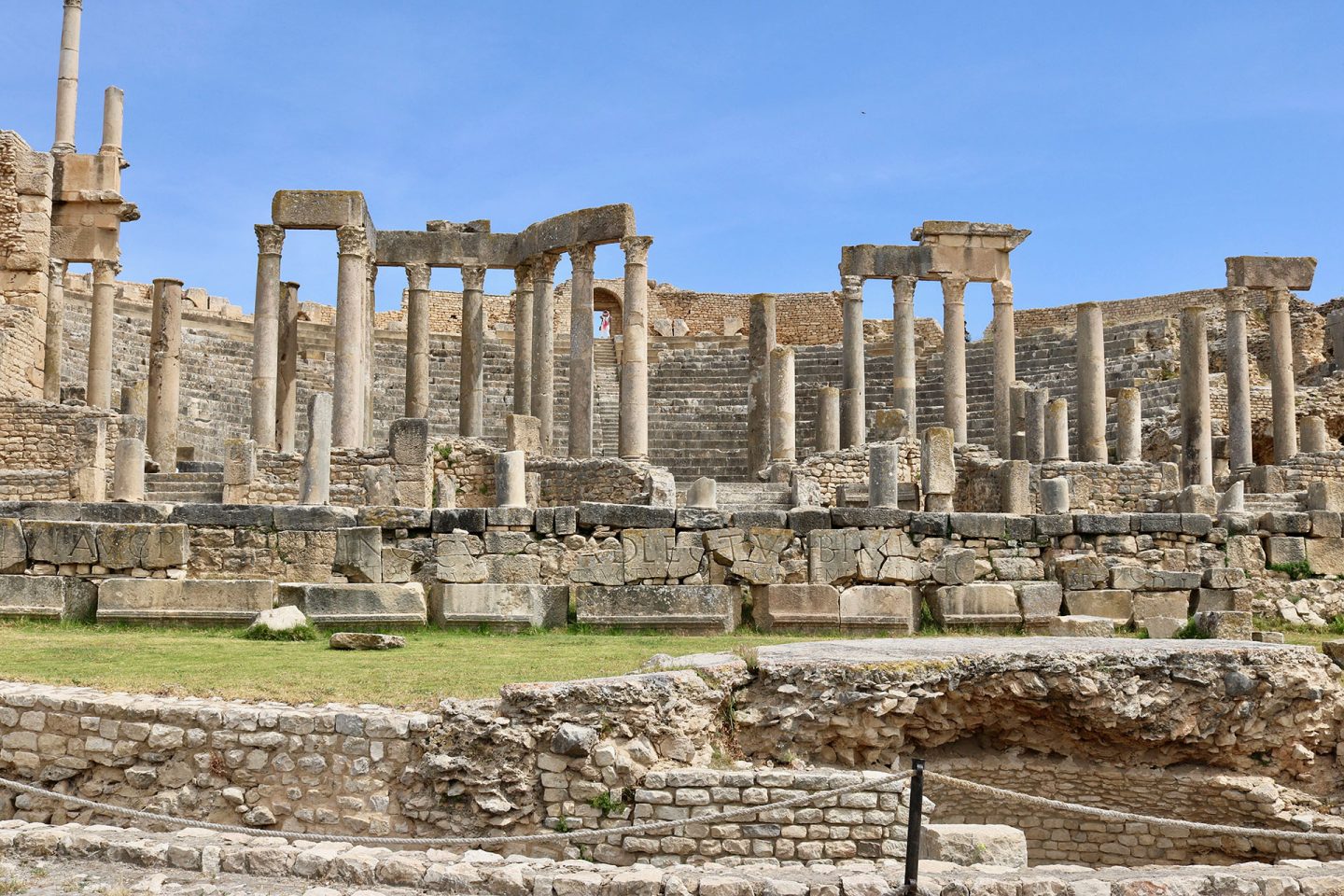
It’s usually difficult to quantify feelings, but as we connected with everyone from President Essebse to local families, it was not hard to quantify Tunisians’ feelings and commitment. Maybe it’s just the look in their eyes when they talk about their new democratic republic. Maybe it’s just a simple “we will get it done” from Ouded Bouchamie, the director of one of the Nobel Prize winning groups.
As a communication specialist, I sense it’s something in what they say and how they say it that symbolizes their deep commitment. I can just imagine Mustafa Ben Jaffar reminding himself, “Yep, things to do today. Wash the car, fold some laundry, and write up a new constitution that will guarantee we’ll be the only North African country to achieve a stable sustainable democracy in the region. Well, maybe the carwash can wait.”
Ed Kellerman is a Master Lecturer and Fulbright Scholar in the Dial Center for Written and Oral Communication. View a full video of his program (opens in new tab).
